Prof Wolfgang Söllner receives the Frits Huyse Award 2022.
Read the interview with Prof. Wolfgang Söllner on the Frits Huyse Award 2022 and find out more about him below.
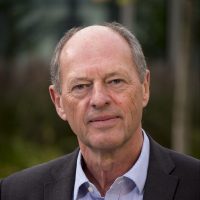
Prof Wolfgang Söllner
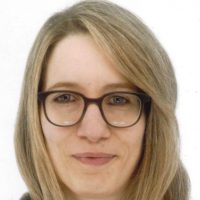
Dr Susanne Fischer
The interview with Prof Wolfgang Söllner was conducted by Dr. Susanne Fischer on March 8th, 2022.
Dr Susanne Fischer: Dear Professor Söllner, my heartfelt congratulations to you for winning the Frits-Huyse-Award. What does it mean to you to be awarded this prize?
Prof Wolfgang Söllner: I feel deeply honoured to be the recipient of this award. To me, it represents a recognition of my efforts to bring together European researchers and clinicians in psychosomatic medicine and consultation-liaison psychiatry. The fact that this is a European prize is particularly important to me as we are currently witnessing times in which the very existence of Europe is threatened by the current political developments. The award also means a lot to me because of my long-standing friendship and collaboration with Frits Huyse, whom I have always admired for his tenacity in pursuing the research topics that mattered the most to him.
May I ask what initially drew you to the field of psychosomatic medicine and consultation-liaison psychiatry? And what has kept you fascinated until this day?
When I was just 17 or 18 years old and in school, I was already fascinated by psychoanalysis. However, I realised that I was also intrigued by the natural sciences and thus started to study medicine at the University of Innsbruck, Austria. After my studies, I begun to train in family medicine. During this time, in which I rotated between different medical departments, I realised that it was the personal stories of the patients which they told me during my visits that resonated with me the most. When did someone fall ill? Why did they develop that particular illness? What could the patient learn from their illness? These were the questions I asked myself. Given this increasing interest in the associations between psychosocial factors and somatic diseases, I decided that I wanted to become an internist with a focus on psychosomatic medicine. After a research and clinical year at the University of Heidelberg, a forerunner in psychosomatic medicine in Germany, I moved back to Innsbruck for personal reasons. It was there where I had the unique opportunity to build an psychosomatic outpatient clinic with Wolfgang Wesiack, a famous internist, psychoanalyst, and Professor of Psychological Medicine at the University of Innsbruck. Together with a colleague, I was also able to develop a consultation-liaison service at the University Hospital in Innsbruck. We started with patients with chronic pain and then moved on to oncological patients. The collaboration with colleagues from medical and surgical departments, for example during consultation hours, in research projects and in the teaching of medical students, has been one of the most rewarding experiences in my career. To this day I feel that there is hardly anything more exciting than to work at the intersection between somatic and psychological medicine. No two patients are alike and there is something to learn from each case.
Among your many seminal contributions to psychosomatic medicine and consultation-liaison psychiatry, for example, in your role as President of the EAPM, which ones do you personally regard as most important?
I feel that contributing to international networks in the field has been among my most formative experiences. One important network which I helped to create was the European Consultation-Liaison Workgroup, which conducted research into patient-centred care across 14 different countries in Europe. The purpose of this programme was to identify the ingredients of successful approaches of integrative care. The second network I contributed to was the INTERMED work group. This was an attempt of creating ways towards a structured assessment of biopsychosocial aspects of each individual patient. As part of this group, I participated in developing instruments for the bio-psycho-social assessment of patients with complex diseases and helped to evaluate them in different patient populations. These experiences also brought me to EAPM in the end, which originated from these study groups, and brought together psychosomatic medicine and consultation-liaison psychiatry. As a representative of both fields, I could contribute to joining these two traditions and to become the society’s first president. From a research point of view, working with patients suffering from severe somatic diseases and who were under existential threat has always felt particularly meaningful to me and I have recently edited a book on psychotherapy with the medically ill that is devoted to this topic.
You have obviously been extremely successful in building a meaningful career in psychosomatic medicine and consultation-liaison psychiatry. Could you name the main “ingredients” of this success?
Clinically, I believe that it was important to build interdisciplinary structures, as we have done in Innsbruck and continued to do at the Paracelsus Medical University in Nuremberg, Germany. Building bridges, identifying common interests with our clinical colleagues, and conceiving of ways how consultation-liaison psychiatry can be most useful for the day-to-day work of these people has been key to ultimately deliver high-quality clinical care. You also need stamina and a vision to guide your work. The same applies to research. Networking and communication are a sine qua non and you need motivated people from different professions, each contributing their specific expertise. Personally, it has also been important to me to have role models, such as Wolfgang Wesiack, my first mentor. He was the one who taught me that there is something to learn from each patient. Frits Huyse, Fritz Stiefel, Francis Creed, and Jim Levenson have greatly impressed and inspired me for many years. If I had to give any advice to early career researchers in psychosomatic medicine and consultation-liaison psychiatry, I would say that it is important to walk on both legs, basic research and clinical practice. Basic researchers need to be thinking about the clinical relevance of their work and clinical practitioners should have a sound methodological knowledge to evaluate their models of integrated care.
Which projects are you currently working on? And: Are there any specific areas in psychosomatic medicine and in consultation-liaison psychiatry where you would like to see more progress in the near future?
A meta-analysis of our group published in Psychotherapy and Psychosomatics has shown that consultation-liaison services are effective in alleviating depression and anxiety in the medically ill. However, what we still know little about is to what extent our liaison work helps to improve hospital teams. One project I am currently involved in addresses this important gap in the literature. In future studies, I would also like to see more research in Europe into the efficacy of collaborative care, which connects inpatient and outpatient treatment. A second project I am excited about is my work on philosophical and ethical aspects of psychotherapy in the medically ill, parts of which I have summarised in my latest book. I believe our profession will be key to tackle at least three major healthcare-related challenges. First, the prevalence of mental disorders will further increase and new psycho-somatic or somato-psychic disorders, such as Long-Covid, will emerge, which will require our expertise. Second, digitalisation and artificial intelligence will have a massive impact on medicine, and in particular on the doctor-patient relationship. I am convinced that we will have a key role in improving communication both between patients and doctors as well as within teams. Finally, the borders between disciplines will continue to dissolve and our profession is uniquely positioned to help to overcome this structural challenge due to our long-standing experience of working at the interface between the body and the mind.
At the EAPM 2022 Vienna Conference, Prof Wolfgang Söllner will give a plenary lecture.
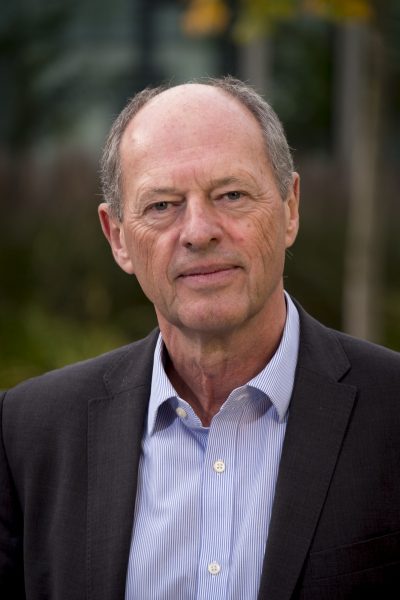
Prof Wolfgang Söllner
Wolfgang Söllner is professor emeritus of Psychosomatic Medicine and Psychotherapy at the Paracelsus Medical University in Nuremberg, Germany. From 2002 to 2018 he was head of the Department of Psychosomatic Medicine and Psychotherapy at Nuremberg General Hospital and from 2015-2021 Vice-president of Paracelsus Medical University.
He startet his academic career at the University of Innsbruck, Austria, where he performed a residency in Family Medicine as well as in Psychiatry and Neurology. In 1997 he finished his post-doctoral thesis on a psycho-oncological topic. He perfomed a training in client-centered psychotherapy, in psychoanalysis and in psychodynamic family therapy. He works in Germany and Austria as a teacher, supervisor and training analyst in psychodynamic psychotherapy.
Dr. Söllner’s main clinical and research interests are coping styles and psychiatric co-morbidities of medically ill patients, psycho-oncology, chronic pain, and psychotherapy with the medically ill. He has extensive clinical experience in training physicians in communication skills. Dr. Söllner published 150 articles in peer-reviewed journals, 75 book chapters and he edited 8 books. He is the principal author of the European guidelines for training in C-L psychiatry and psychosomatic medicine and one of the editors of Uexküll’s Textbook of Psychosomatic Medicine.
He is a Fellow of the Academy of Psychosomatic Medicine and 2016 Oken Fellow of the American Psychosomatic Society. From 2012 to 2020 he was president of the European Association of Psychosomatic Medicine (EAPM).
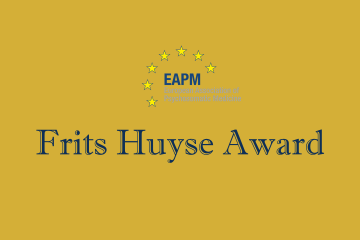

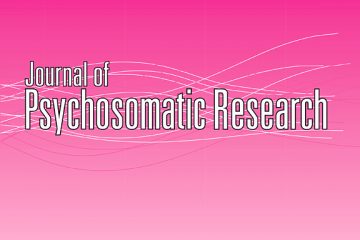
0 Comments